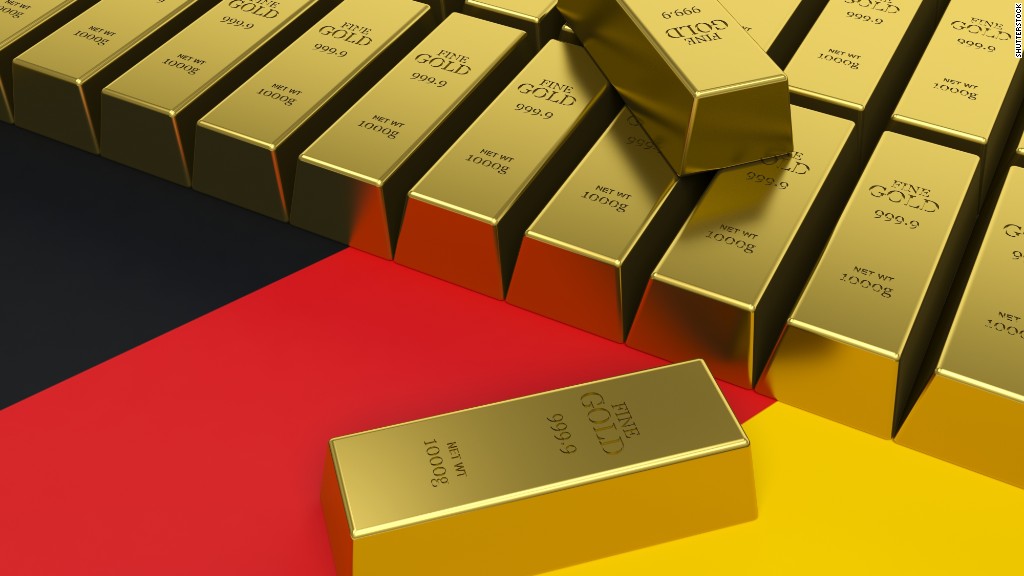
Mining stocks are in a hole right now.
They're getting creamed as prices for gold, iron ore and copper crumble. Shares of mining companies Freeport-McMoRan (FCX) and Joy Global (JOY) have plunged 35% and 28% this month, respectively. That makes them the worst performers in the entire S&P 500 in July.
British miner Anglo American (AAUKF) revealed plans last week to slash 53,000 jobs to cope with lower prices. Other mining companies are in financial distress, with investors betting some may not be able to survive.
The turmoil in the materials industry stems from the fact that the global economy no longer has a huge appetite for metals. There's simply too much material being taken out of the ground with not enough demand.
All this turmoil can be traced to China. The country's explosive growth and demand fueled a decade-long commodities "super cycle." Now that China is cooling off, it's wreaking havoc on the metals industry.
"It's really the perfect storm of dramatic slowdown in China, a strengthening U.S. dollar and moderating growth for the rest of the world," said Garrett Nelson, an analyst of mining stocks at BB&T Capital Markets.
Commodities like gold, copper and even oil are priced in dollars and the American currency's ascent has hurt demand for raw materials by making them more expensive for those who purchase in foreign currencies.
Related: China is getting sick. Will it infect America?
Boom to bust: The deep slump in the commodities sector is not new. But it's recently gotten worse. The CRB raw industrials spot price index skyrocketed nearly 200% between 2001 and 2011 as China's growth fueled enormous demand for metals like copper and iron ore that are used in construction.
However, China's growth topped out in 2011, knocking a huge hole in demand for raw materials.
That caused some serious problems because commodity producers had ramped up production. They believed churning out more metals would translate to more profits so they spend heavily on infrastructure that is used to extract, transport and mine them.
All of this means not only is there not enough demand, there's too much supply. No wonder the CRB index is down 30% since 2011. Last week, it tumbled to its lowest level since 2009.
Related: What's behind the falling prices of oil, gold and copper
Iron ore, copper & gold slide: One of the most oversupplied metals may be iron ore. That's created headaches for major iron ore suppliers like BHP Billiton (BBL) and Cliffs Natural Resources (CLF). Over the past year those shares have plummeted 47% and 84%, respectively.
Copper, nickel and aluminum have fallen even more lately due to the turmoil in China's stock market and weak manufacturing activity there. The selloff has driven down shares of Freeport and Southern Copper (SCCO). Canada's Teck Resources (TCK)' stock plummeted 30% this month alone.
Gold prices also tumbled below $1,100 an ounce last week for the first time in five years. With gold in the toilet, investors are dumping miners like Newmont Mining, Barrick Gold (ABX) and Coeur Mining (CDE).
Related: Gold suffered its worst slump since 1996
Are bankruptcies next? The turmoil in the mining world is raising concerns that some companies may not make it out of the slump alive.
"The level of distress is not quite at 2008-2009 or even 2011 levels but it's getting there and getting there quickly. Something has to give," Michael Block, chief market strategist at Rhino Trading, wrote in a note to clients on Monday.
One sign of distress is the surge in the price to insure debt of materials companies against default. For example, the cost to insure Newmont Mining's debt for five years has skyrocketed 113% over the past month, according to FactSet.
Block predicted more "casualties" in the commodities complex due to the over-investment and difficult supply/demand dynamics.
"It doesn't have to derail the whole system, and I don't think it will. But it is the biggest risk going on right not -- not China meltdown, not Greece, not Donald Trump and not Hulk Hogan," Block wrote.
Expect companies to announce more cost-cutting moves to strengthen their balance sheet. That means more layoffs and asset sales.
Related: U.S. companies with the most to lose in China
When will miners rebound? The best cure for the mining sector would of course be higher prices. But there's little sign that will happen soon, especially with China's market plummeting 8.5% on Monday.
"It's hard to see a rebound soon without a major 'shock and awe' spending program out of China, which doesn't seem very likely," Ed Yardeni, president of investment advisory Yardeni Research, wrote in a note to clients.


